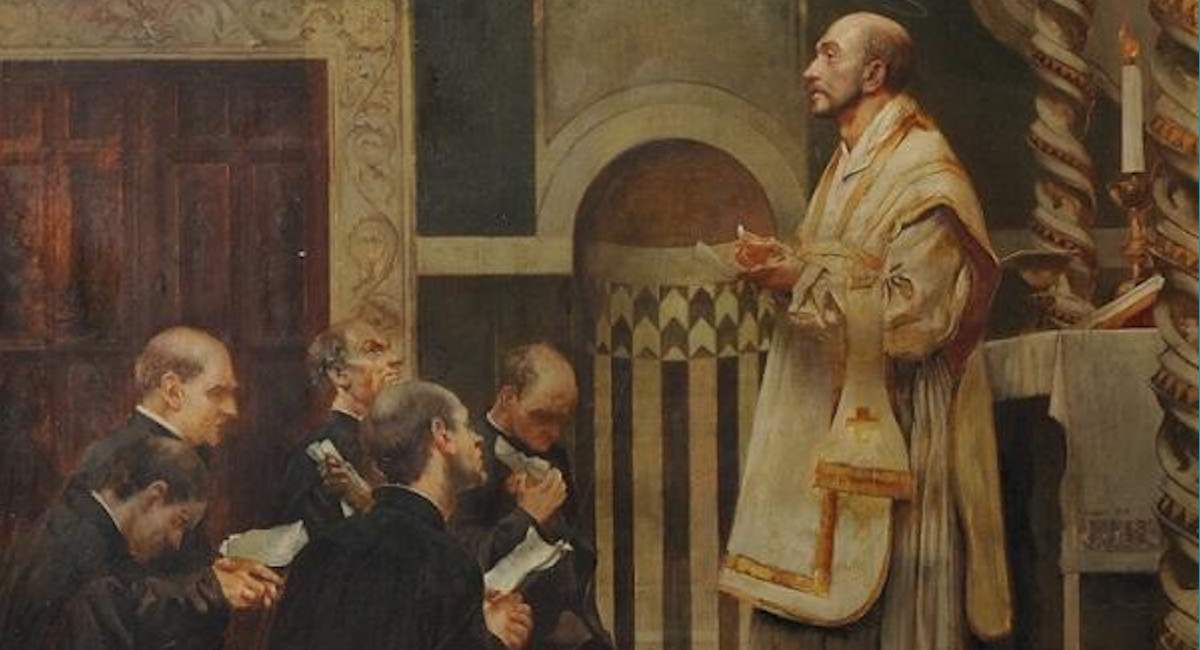
Ignatius and first companions profess First Vows at Montmartre. Fr Peter Faber celebrates the Mass.
Living in community is and should be a life-giving experience for its members, thus said Fr Jojo Magadia SJ, Regional Assistant for Asia Pacific, at the Local Superiors workshop held from 2 to 8 September organised by JCAP Formation Delegate, Fr Riyo Mursanto SJ.
The virtual gathering of 57 current and possible Jesuit superiors from 11 provinces and regions in the conference was especially helpful for first-time superiors. The variety of cultures to which the participants belonged made possible a more profound understanding of community life and of the superior’s mission.
The workshop’s sessions were held in the afternoon. They afforded the participants sufficient time to listen to and ask questions or clarifications about the presentations given by the facilitators, as well as to engage in small or big group discussions after each talk. The participants were fortunate and grateful to have had Fathers Magadia and Roger Champoux SJ as facilitators.
For the first three days, Fr Magadia gave a series of talks that centered on the superior’s mission and role in the community. He began by reminding the participants about community as mission that takes into consideration its diverse multicultural aspects. He presented for the participants’ consideration 15 key roles that are part of the superior’s mission.
Towards the end of his talk, Fr Magadia emphasised community life as a collective effort. He referred to General Congregation 36, and the importance of communal discernment for mission and as mission. Such discernment should be marked by a docility to the Spirit, which must govern the community’ discussions about the results of its discernment. Fr Magadia ended by presenting for small group discussion certain situations in the community that superiors need to address.
To help the participants fulfill their mission as superiors, Fr Champoux talked about leadership styles. They answered the HAIL test to help them understand their own style, and to make them aware of its effect on their manner of dealing with community members. Fr Champoux also gave a talk on ACES (Adverse Childhood ExperienceS) to help the participants become aware of their own experiences, which in turn, would hopefully help them, as superiors, to respond charitably to community members formed by their own painful childhood experiences.
Fr Champoux spent some time discussing the self-care of superiors. Since one cannot give what one does not have, a superior must take care of himself to be able to take care of his community. Along those lines, the participants answered the Maslach Burnout Inventory, a test that gauges one’s stress levels, which can serve as a warning that one may be dangerously approaching burn out or exhaustion. For Fr Champoux, stress is a natural phenomenon, and is not necessarily negative. If perceived positively, stress can bring out the best in a person; but if perceived negatively, stress will result in one’s disintegration. Finally, Fr Champoux spoke briefly about abuses. Given the importance of the topic, the participants agreed to have another meeting to discuss it exhaustively.
In the final session, each participant shared with the rest of the group how the workshop had helped him understand and appreciate better the superior’s role and mission, and the importance of self-care. The participants acknowledged having been enriched by the small and big group discussions, by the tests given to them, and by the valuable insights that Fathers Magadia and Champoux shared in the course of the six days.






